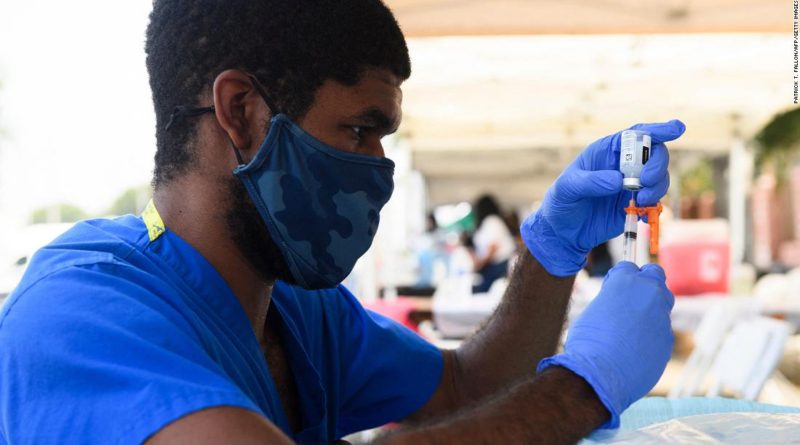US coronavirus: Young children will pay the price if enough US adults don’t get vaccinated against Covid-19, expert says
“Transmission will continue to accelerate … and the ones who will also pay the price, in addition to the unvaccinated adolescents, are the little kids who depend on the adults and adolescents to get vaccinated in order to slow or halt transmission,” he said.
In 46 states, the rates of new cases this past week are at least 10% higher than the rates of new cases the previous week, according to data from Johns Hopkins University.
In Los Angeles County, the country’s most populous, there has been a 500% increase in cases over the past month, according to the county’s latest health data.
Many more adolescents could become hospitalized, Hotez said, adding up to 30% of children infected will develop long-haul ovid.
“What you’re doing is your condemning a whole generation of adolescents to neurologic injury totally unnecessarily,” Hotez said. “It’s just absolutely heartbreaking and beyond frustrating for vaccine scientists like myself to see this happen.”
Debate over vaccine mandates
With experts stressing the importance in vaccinating a majority of Americans against the virus, some officials are debating whether to mandate vaccinations at the local level.
Some schools and employers have already implemented measures requiring students and employees to be vaccinated before returning.
But many states are moving to block such requirements.
A CNN analysis found that at least seven states — Alabama, Arkansas, Florida, Indiana, Montana, Oklahoma and Utah — have enacted legislation this year that would restrict public schools from requiring either coronavirus vaccinations or documentation of vaccination status.
Such legislation can hurt the nation’s 48 million Americans under the age of 12, former Secretary of Health and Human Services Kathleen Sebelius said Tuesday.
“If we start with a lens on the children and wanting children to get back to school, which is what we all say is the priority, then we have to get more serious about employers and schools and universities stepping up and saying ‘it’s great if you don’t want to be vaccinated. But if you don’t, you really can’t have access to places that will put you in contact with folks who can’t get vaccinated,'” Sebelius said.
One thing the federal government can do to support vaccine mandates is expedite the full authorization of the available vaccines, she said.
“Getting full approval — getting out of the emergency use authorization and into full approval — is something that will clear up any legal questions that private employers may have,” Sebelius said.
What surges could mean for the school year
Most officials and health experts have stressed the importance of students being able to safely return to school in the new academic year, but vaccine hesitancy could impact how districts move forward.
Only a quarter of Americans age 12 to 15 are fully vaccinated against Covid-19, according to data published Tuesday by the CDC, making them the age group with the lowest rate of vaccination.
Despite the initial guidance stating, “Schools must exclude students from campus if they are not exempt from wearing a face covering under [California Department of Public Health] guidelines and refuse to wear one provided by the school,” spokesman for Gov. Gavin Newsom’s office, Alex Stack, insists the intent was not to turn away students.
“The way [the guidance] was written didn’t accurately reflect the intent, so it was rewritten,” Stack told CNN, acknowledging the statement came across as “banning kids.” “It’s important to get this right so parents and students know what to expect going in to school year.”
New York City Mayor Bill de Blasio said the city’s guidance could change as the school year gets closer, but for now families should assume masks will still be worn in schools come September.
“We’ve been constantly working with the CDC, but we also in this case have been very careful given everything the city has been through … for now, we’re sticking with the idea that, you know, wearing the masks is the smart thing to do in schools,” De Blasio said.
CNN’s Alexandra Meeks, Lauren Mascarenhas, Deidre McPhillips, Holly Yan, Laura Ly, Cheri Mossburg and Joe Sutton contributed to this report.


